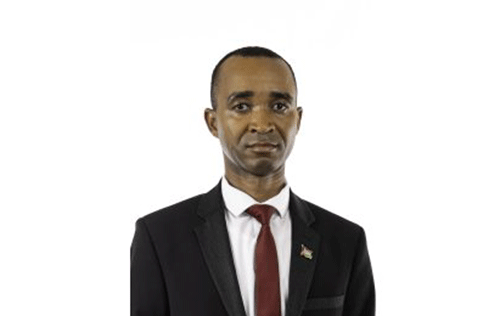Iuze Mukube
Independent Patriots for Change legislator Nelson Kalangula says a country cannot develop without infrastructure development, which is the bedrock for its advancement.
He made these remarks in the National Assembly last week when making his maiden speech and contribution to the 2025-2026 national budget.
“The budget must cater for and ensure that Namibian engineers, architects, quantity surveyors and other specialist consultants are given an opportunity to take the lead through projects in building and development of our motherland,” Kalangula said.
He emphasised holding to account those who abandon projects after being fully paid.
“Accountability has been observed to have been at a minimum over the past years; it is now worth catapulting into effect within these SOEs, going forward,” he added.
The lawmaker also touched on the Appropriation Bill, highlighting the significant allocations for infrastructure under votes 23 and 24, totalling N$3.5 billion.
Notably, that N$275.9 million earmarked for feasibility studies, design and supervision in the transport sector alone is a substantial increase from the allocation of the previous fiscal year, he said.
He added that the railway infrastructure division alone accounts for N$196.4 million of this budget, indicating plans for major projects by the ministry.
“Fees for feasibility and design are usually 20%-30% of the total professional charges, with supervision charged throughout the construction phase. The scale of such professional fees should ideally correlate with the value of the planned capital works. Therefore, an allocation of N$275.9 million would suggest a project portfolio of well more than N$3 billion, if standard fee scales are applied,” he said.
Kalangula emphasised that this amount does not include construction works but is for professional services only, primarily rendered by engineers, architects, quantity surveyors and other specialist consultants.
He questioned how the finance minister came up with a N$275.9 million allocation for professional services.
If the cost estimates align with the gazetted professional fees in Namibia, it raised concerns about the proportion of funds going to local versus foreign consultants.
“Moreover, what value-for-money mechanisms and technical oversight structures are in place to ensure that this money is not spent on duplicated or inflated services? Lastly, was there justification for such a large allocation for non-capital items, especially amid scarce resources, and did this figure undergo treasury vetting or cost-efficiency assessments, or was it merely submitted and accepted as is?”
Kalangula said it is upon all Members of Parliament to ensure that the budget works for all the citizens and, at the same time, does the best for all Namibians regardless of political affiliation.



